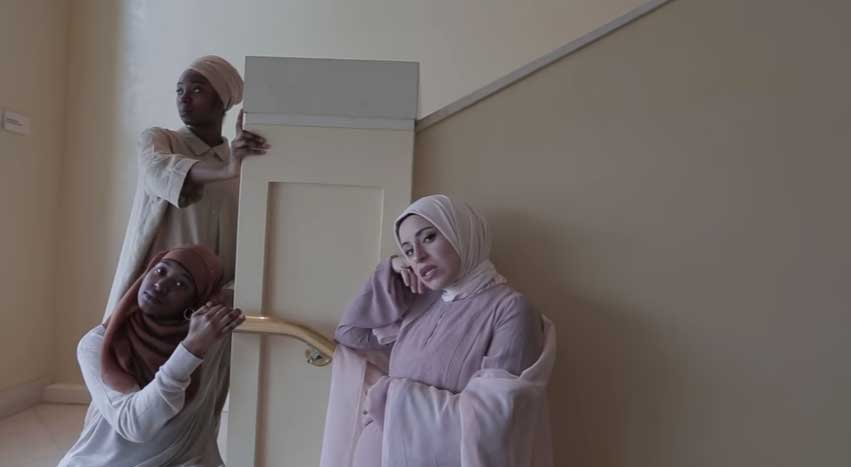Mona Haydar, a Muslim poet, rapper and activist from Flint, Michigan created a powerful rupture in Western Liberal feminist narrative when she released her first single titled ‘Hijabi’ in 2017.
The song gained widespread acclaims within months of its release. The catchy tune and powerful lyrics gained it more than a million views on youtube.
The video, featuring a very inter-sectional assemblage of women wearing the Hijab starts with the lines,
“What that hair look like,
Bet that hair look nice,
Don’t that make you sweat?
Don’t that feel too tight?”
These are the questions faced by almost every scarf wearing woman in the world, especially those living in a multicultural society like the United States of America.
These un-woke questions or unwanted fascination by the western world towards the ‘oriental’ women stems from a deeply internalised prejudice against Islam.
It is widely considered that women in the Muslim countries are oppressed because of the way they are allegedly forced to dress up. The oppressive Muslim patriarch and the victimhood of Muslim women has been a part of various political, international and human rights discourse throughout the years.
In fact, one of the arguments given by Bush for invading Afghanistan post 9/11 was the rescue of “poor oppressed women” of this patriarchal country as mentioned by Iris M. Young in her powerful essay “The Logic of Masculinist Protection: Reflections on the Current Security State”.

The masculinist protection victimises the oriental/third world women. The liberal feminist discourse of the West has never shied away from being a complicit in the same narrative.
This is not to diss the fact that these societies are patriarchal in nature. However, the nature of patriarchy and the bargain with patriarchy is subjective and varies according to time, place and the situation of women in these societies as portrayed by Deniz Kandiyoti in her essay “Bargaining with Patriarchy”.
The claimed superiority of one type of feminism over the other is one of the main criticism Mona Haydar tried to target through her single.
When a feminist claims that clothes are a matter of choice and one has absolute agency over one’s body and choice of dress, then his/her sympathetic and infantilising attitude towards a Hijab wrapped woman is nothing but hypocrisy. This attitude takes away the agency from these women. Instead of empowering them, this narrative keeps the women at the same derogative place, only now, they are at the mercy of these liberated feminists instead of the oppressive men.
So when one supports bra-burning, that same person should support one’s agency of wearing a Hijab. Feminism should work both ways. Mona’s lyrics reflect this very sentiment when she sings,
“Make a feminist planet,
Women haters get banished,
Covered up or not,
don’t ever take us for granted.”
Apart from ripping apart the universal notion of feminism which derives its juices from the Western liberal discourse, Haydar also criticises the exoticisation of the ‘Oriental’ women and racism. This is a powerful connection made by the singer.
The exoticisation stems from a deep rooted racial profiling of women who look/behave/practice different faiths, customs and cultures. Apart from that, the body positivity is strongly reflected in the single.
A very pregnant Mona with women of different shapes and sizes gives a hope of liberation from the preached beauty standards of the society.
The whole video gives a sense of liberation and validation that majority of the “different” women have been seeking. Academia is mired with these sorts of discourse but to see a mainstream song with catchy tunes and the approval of general population makes one hopeful of a better, liberated and empowered future of women of “every shading”.
Utsa Sarmin is a research scholar from Cambridge University, United Kingdom. She has completed her M.Phil in development studies.











